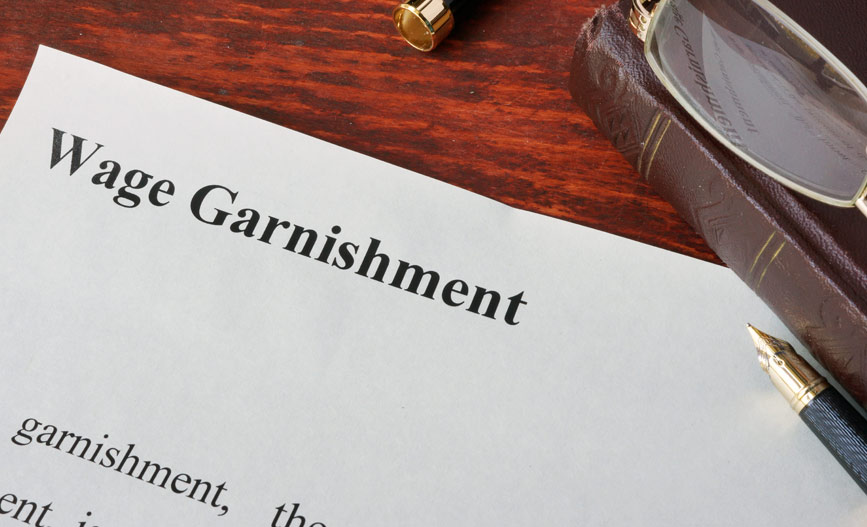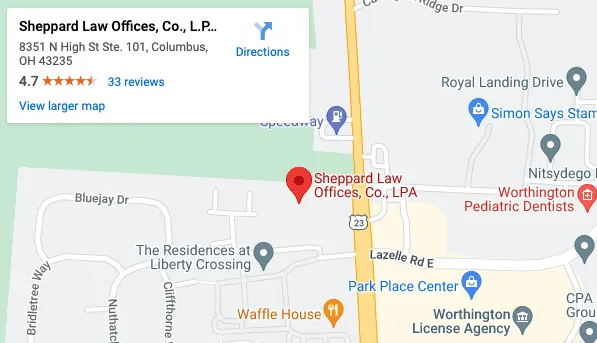Wage Garnishment

Columbus Wage Garnishment Attorneys
At Sheppard Law, we know you have many questions about wage garnishment, like why it’s happening and what you can do about it. Bankruptcy may be your answer to stopping a wage garnishment. Read our wage garnishment FAQs below then call Sheppard Law to set up your free consultation. Trust our experienced legal team to help with your case today!
Why are my wages in Columbus being garnished?
In Ohio, a general creditor is allowed to seek a wage garnishment or bank levy against you once a judgment is ordered in either Municipal or County Court. In addition, federal law and Ohio state law allows for a worker’s wages to be garnished and bank accounts seized for IRS tax liabilities, state income debt, child support and spousal support obligations, and student loans.
What are Bank Levies and Asset Seizures?

SETTLE YOUR DEBT AND TAX PROBLEMS Today!
Contact Us Now!
Bankruptcy
What is a Judgment Lien?
Another way for a creditor to recover a money judgment is by filing a Certificate of Judgment. A judgment lien doesn’t necessarily have an immediate impact, but it can affect you in the future if you try to transfer your residence or refinance your mortgage. A Certificate of Judgment operates as a judicial lien against your real and personal property. Judicial liens are most relevant in dealing with your real estate.
Although the creditor cannot force the sale of your residence when you attempt to transfer your real property or try to refinance your mortgage, that judicial lien must be satisfied first. A judicial lien can be avoided in bankruptcy. The Bankruptcy Lawyers at Sheppard Law Offices can help you determine if you have a judicial lien and consult with you on how to avoid one.
Can bankruptcy stop collections?
Yes. When you file for bankruptcy relief under either Chapter 7 or Chapter 13, the “automatic stay” provision of the U.S. Bankruptcy Code is activated. No creditor can collect against a debtor once a bankruptcy petition is filed with the bankruptcy court.
Does a wage garnishment stop when I file bankruptcy?
Yes. On the date you file for bankruptcy protection, a Notice of Bankruptcy Filing is issued by the court. At Sheppard Law Offices, we immediately send that notice to your employer or payroll department so that no further wages will be garnished. If, for any reason, your wages are garnished after you file for bankruptcy, you will receive those garnished wages back from the creditor.
Are there Ohio exemptions to protect wages and monies in bank accounts?
In Ohio, there are statutory exemptions that protect at least some of the monies that can be taken by creditors. For example, creditors can only take up to 25% of your wages and only monies in bank accounts that exceed $475. Also, a general creditor cannot seize any money you receive from a federal benefit such as Social Security Income or Social Security Disability Income. In bankruptcy, we use these state law exemptions to protect your assets.
Stop Living with Wage Garnishment. Call Ken Sheppard Today
Filing bankruptcy will halt lawsuits, potential wage garnishment, and bank levies. If a creditor is attempting to seize your assets, contact our team of trusted bankruptcy and wage garnishment attorneys to ask about your legal rights and remedies. We also offer a free consultation. For your convenience, we have law offices in Columbus, Newark, and Mount Vernon, Ohio. Or call (614) 523-3106 today to schedule your free consultation.

